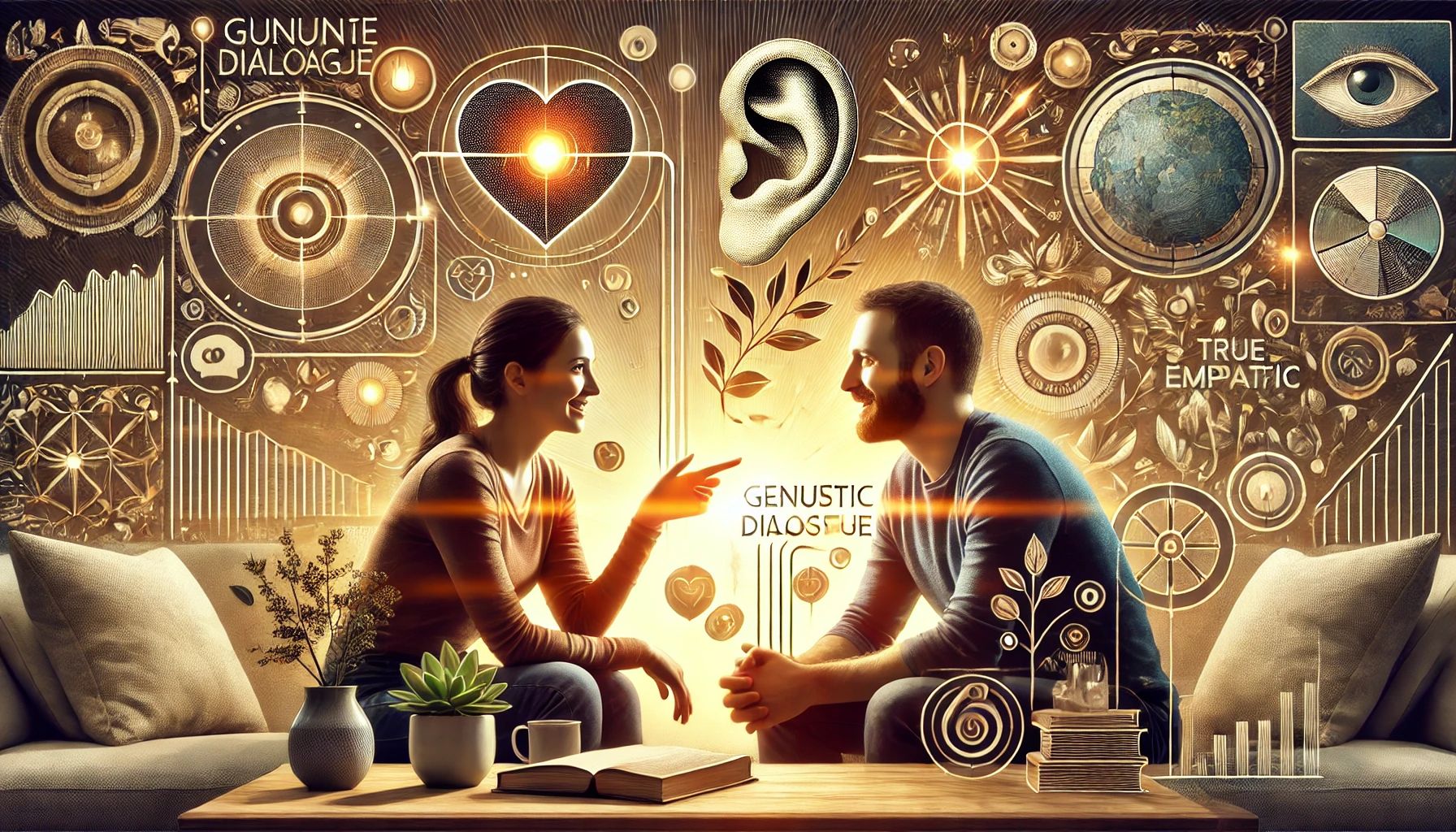
True intimacy transcends superficial gestures like hugs or social media likes; it begins when genuine dialogue takes root. But dialogue isn't just about speaking and hearing wordsŌĆöit's about empathetically understanding another's perspective, momentarily setting aside one's own needs.
Embracing Authentic Dialogue
The path to authentic dialogue is fraught with challenges, rooted in personal histories where true listening may have been absent. Childhood experiences of being unheard or dismissed can hinder one's ability to genuinely engage with others later in life.
Recognizing Pseudo-Dialogues
Many adult interactions mimic real communication but lack depth, leaving participants feeling lonely and dissatisfied. These pseudo-dialogues often distort meanings, sidestep genuine connection, and instead foster misunderstandings and emotional discord.
Distorted Interpretations: Misunderstandings arise when one party distorts the other's words, leading to conflicts and unmet needs for mutual understanding.
Interrogative Aggression: Genuine inquiry should clarify, not undermine. Bombarding someone with questions can diminish their clarity and erode trust in communication.
Counter-arguments: Instead of fostering understanding, some engage in debate, finding fault or undermining the other's perspective, driven by personal insecurities.
Parallel Monologues: Rather than true dialogue, this involves alternating personal stories without engaging with each other's experiences, leaving both unheard and unconnected.
The Essence of Dialogue
Confident individuals embrace dialogue as an opportunity to explore differing perspectives without feeling threatened. They view alternative viewpoints as enriching rather than challenging their own identity.
Avoiding Psychological Projections
Attempting to decipher someone's thoughts without their consent invades their privacy and disrupts genuine dialogue. Understanding should come from mutual respect and open communication, not speculation.
Cultivating Genuine Dialogue
To foster genuine dialogue, one must cultivate the ability to truly listen and empathize with others' emotions and thoughts. This enriches relationships and leaves participants feeling fulfilled and understood, even amid differing opinions.
Conclusion
True dialogue is a skill honed through practice and self-awareness, essential for building meaningful connections and nurturing authentic relationships. It transcends mere communication to create bonds of empathy and understanding that enrich the human experience.


